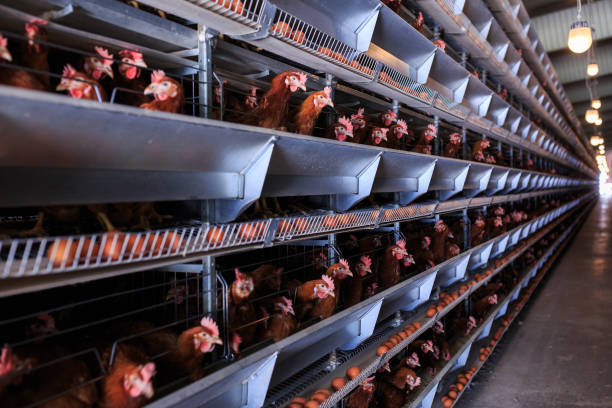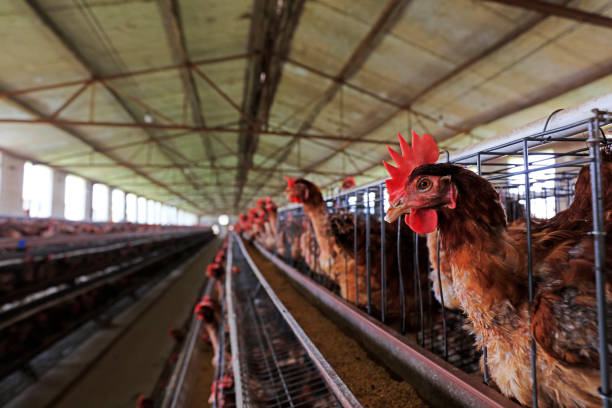Introduce the concept of automatic battery cages for layers chicken and their transformative impact on poultry farming. Highlight the efficiency, welfare benefits, and productivity enhancements associated with this modern farming equipment.
Understanding Automatic Battery Cages
- Explain the design and features of automatic battery cages for layers chicken, emphasizing their capacity, automation, and space utilization.
- Discuss the advantages of using battery cages in terms of egg production, bird health, and labor efficiency.
- Highlight the importance of proper installation and management of automatic battery cages for optimal performance.
Enhanced Productivity and Efficiency
- Increased egg production: Explore how automatic battery cages contribute to higher egg yields and improved egg quality in a commercial poultry operation.
- Labor-saving benefits: Discuss how automation features of the cages reduce manual labor requirements, leading to operational efficiency and cost savings.
- Feed and water management: Analyze how automatic battery cages facilitate precise feed and water distribution, ensuring optimal nutrition and hydration for layers chicken.

Animal Welfare and Health Management
- Space and comfort: Address concerns related to bird welfare in battery cages, highlighting advancements in cage design to provide adequate space and comfort for layers chicken.
- Disease prevention: Discuss how the controlled environment of automatic battery cages helps in disease prevention and health management practices.
- Behavioral considerations: Explore how the design of battery cages takes into account natural behaviors of layers chicken to promote their well-being and reduce stress.
Economic Benefits and Return on Investment
- Cost-effectiveness: Evaluate the cost savings and long-term benefits of investing in automatic battery cages for a 10,000 layers chicken farm.
- Return on investment: Discuss the potential financial returns and economic advantages of using this equipment in poultry farming operations.
- Market competitiveness: Highlight how the adoption of modern farming practices, such as automatic battery cages, can enhance the competitiveness of poultry businesses in the market.
Sustainability and Environmental Impact
- Resource efficiency: Address the eco-friendly aspects of using automatic battery cages, such as waste management, energy efficiency, and resource conservation.
- Compliance with regulations: Discuss how the equipment aligns with industry standards and regulations for sustainable poultry farming practices.
- Future trends: Predict the future developments in automatic battery cage technology and their potential impact on sustainability and environmental stewardship in poultry farming.
Conclusion
Summarize the key benefits and advantages of using automatic battery cages for layers chicken in a 10,000-bird poultry farm. Emphasize the role of this modern equipment in revolutionizing poultry farming practices, improving productivity, animal welfare, and overall sustainability in the industry. Encourage farmers to consider adopting automated solutions for a more efficient and profitable poultry operation.







